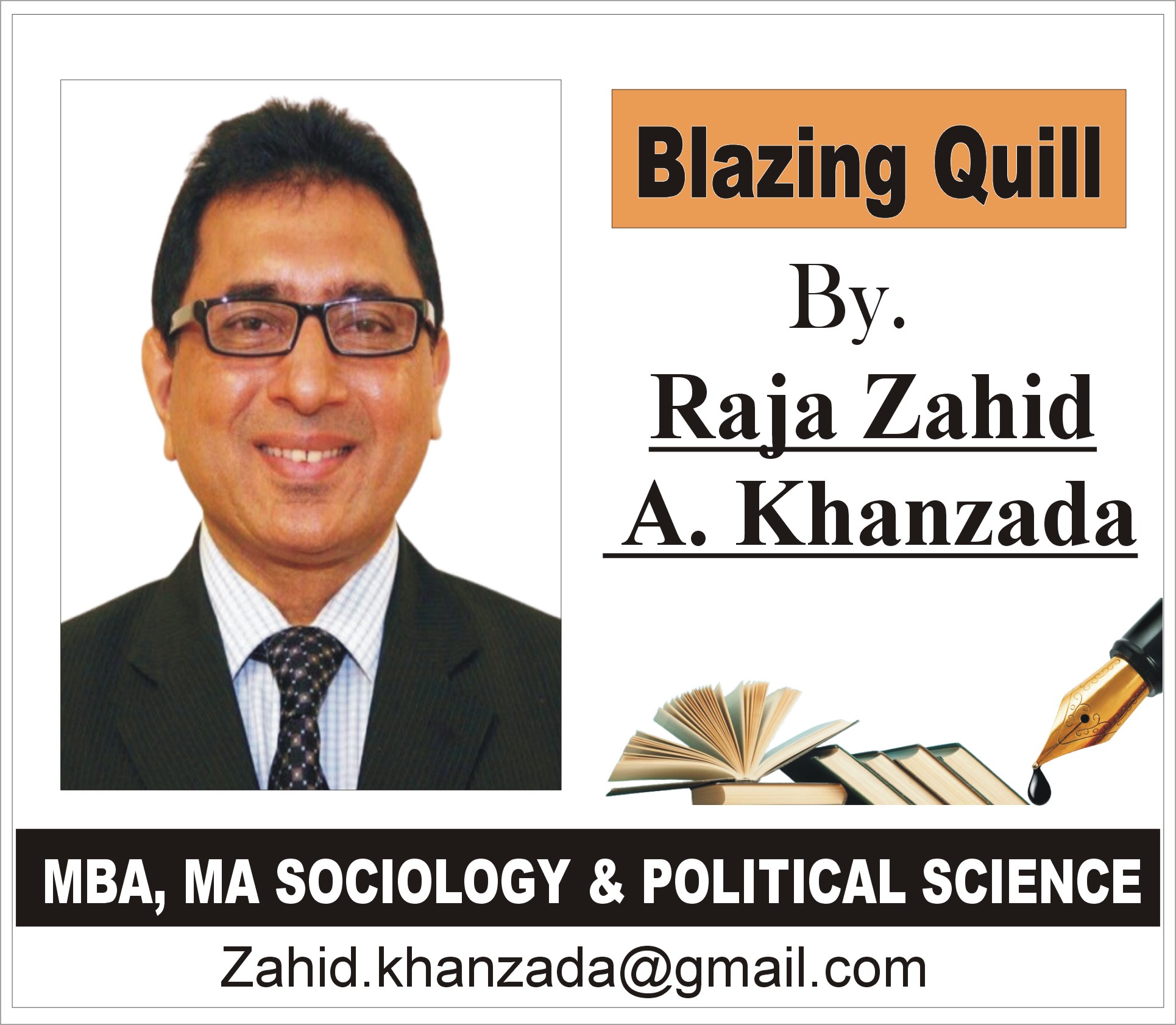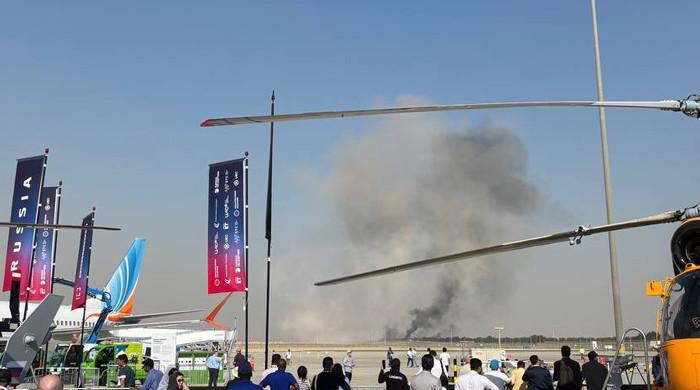When Arrogance Forged in Metal Fell Upon the Sand: The Silent Death of Tejas at the Dubai Air Show
By Raja Zahid Akhtar Khanzada
When Pride Turned to Metal and Fell Upon the Sand: The Silent Death of Tejas in Dubai
By Raja Zahid Akhtar Khanzada
In Dubai’s sky today, a moment seemed to freeze, as if the noisy world suddenly fell silent. On a sunlit runway, when the Indian fighter jet Tejas dipped toward the earth during its final arc, time itself appeared to pause, exhausted. Within seconds, flames leapt upward, smoke curled into the air, and years of human labor, national pride, political claims, and soaring dreams dissolved into particles of dust.
The tragedy unfolded during the Dubai Air Show, a stage where nations bring their finest machines to display precision and mastery, where aviation is both spectacle and proof of technological ambition. Yet this afternoon, in that glittering city of the sky, India’s much-celebrated Tejas collapsed under the weight of its own promise. A young Indian pilot lost his life, and a nation’s narrative fractured in full public view.
What happened was more than an accident; it was a philosophical question wrapped in fire, asking every onlooker: What truly measures power? Boasts printed on paper? The slogans of politics? Or the reality that hangs in the air for one fragile moment before the sky delivers its verdict?
For years, India presented Tejas as a national triumph, a symbol of indigenous brilliance and sovereignty. It was heralded as the guardian of future decades. Yet when it struck the ground, the force of impact shattered more than metal. It ruptured the political mythology carefully sculpted by the Modi government, a mythology that had traveled from podiums to parades to television screens. This was one of those rare blows where truth slices through layers of spectacle.
Inside India, ripples of unease spread instantly. Even Bollywood’s biggest stars, usually cautious with their words, questioned how long poor planning, corruption, technical negligence, and misplaced priorities would keep costing military pilots their lives. How many more flying coffins, they asked, must swallow young men before the nation confronts reality? And for how long will propaganda be used to veil the cracks in its defense industry?
The fall of Tejas was not merely the collapse of a machine.
It was the unveiling of structural decay.
It was the echo of a decades-long drift.
It was the exposure of all those truths New Delhi hoped to bury behind curated images and political declarations.
Elsewhere at the same air show, a contrasting scene unfolded. Crowds gathered in steady waves around Pakistan’s JF-17 Thunder. Even after the show officially ended, even after the aircraft was covered in its ceremonial red cloth, people refused to step away. They stood around it for hours, taking photos, admiring its silhouette. What surrounded the Pakistani jet was not noise but affection; not propaganda but trust; not spectacle but quiet respect.
Pause for a moment.
This is not simply the tale of two aircraft.
It is the tale of two mindsets, two paths, two philosophies.
One built on display, the other on delivery.
One centered on inflated pride, the other on consistent performance.
Indian media is now investigating whether the crash resulted from mechanical failure or inadequate training. But perhaps this is exactly where the thread begins: when institutions become hostage to political vanity, when defense budgets drain into publicity rather than precision, when optics matter more than engineering, the sky becomes merciless. It forgives no one.
The story does not end with the crash site. It extends into a wider South Asian landscape, a moment of reckoning for political leadership across the region. Pride always invites gravity. Propaganda always collapses under its own weight.
The loss of the pilot is a tragedy. Yet the deeper tragedy is the recurring truth that those who make the wrong decisions live on, and the cost of their errors is carried on the shoulders of young men brought home in silence.
In the harsh sunlight of Dubai, a nation’s pride dimmed. And this moment stands as a reminder for every country that attempts to convert illusion into truth through repetition and spectacle.
Today Tejas fell.
Tomorrow some other embellished story will fall.
But history always reserves a place for truth.
And that is why crowds circled the JF-17, why pride and admiration clung to it even after the lights dimmed. Because authenticity has weight. Reality has presence. And falsehood eventually collapses.
The accident took place at the Dubai Air Show, but its resonance will travel far beyond the Gulf’s horizon. The world will not forget, and history will etch this moment far more deeply than any press release or political speech ever could.




